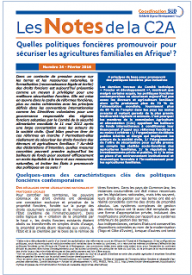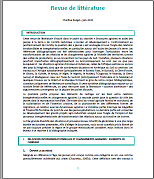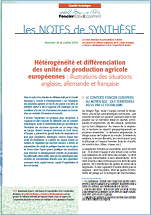Quelles politiques foncières promouvoir pour sécuriser les agricultures familiales en Afrique ?
Dans un contexte de pression accrue sur les terres et les ressources naturelles, la formalisation (reconnaissance légale et écrite) des droits fonciers est aujourd’hui présentée comme un moyen à privilégier pour une meilleure sécurisation foncière.




